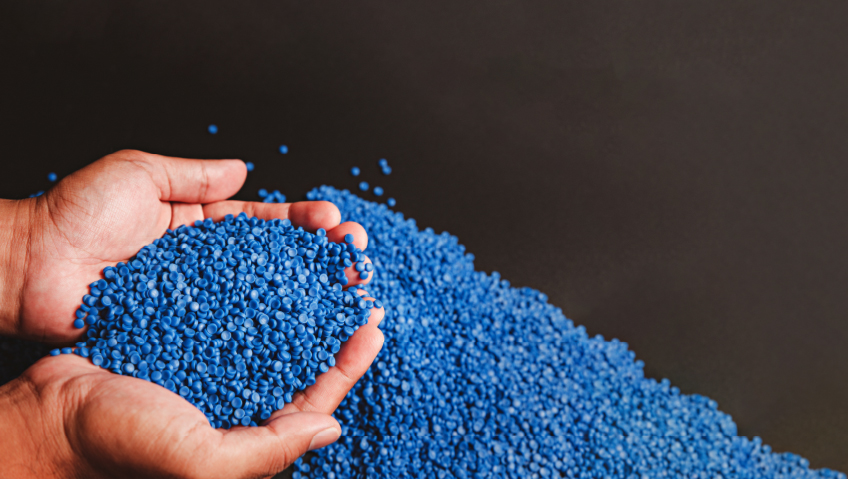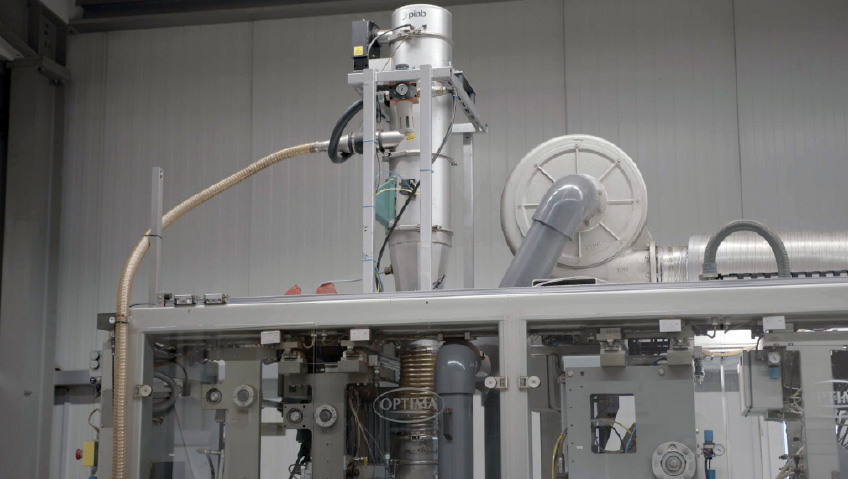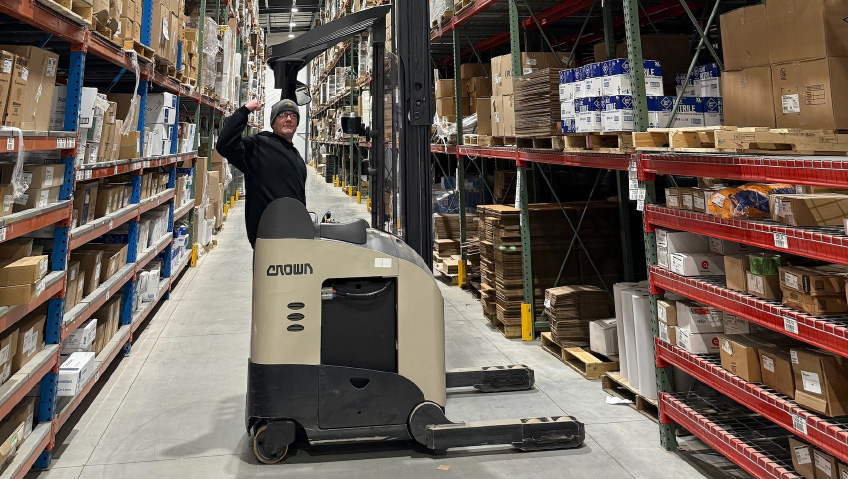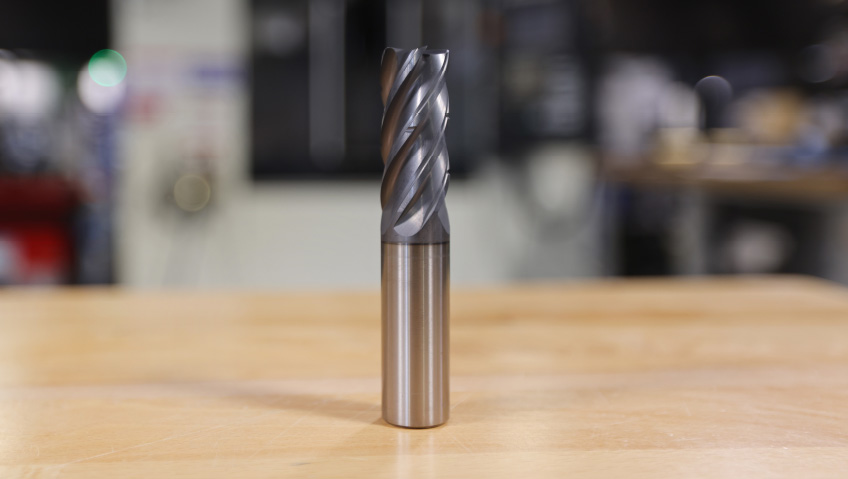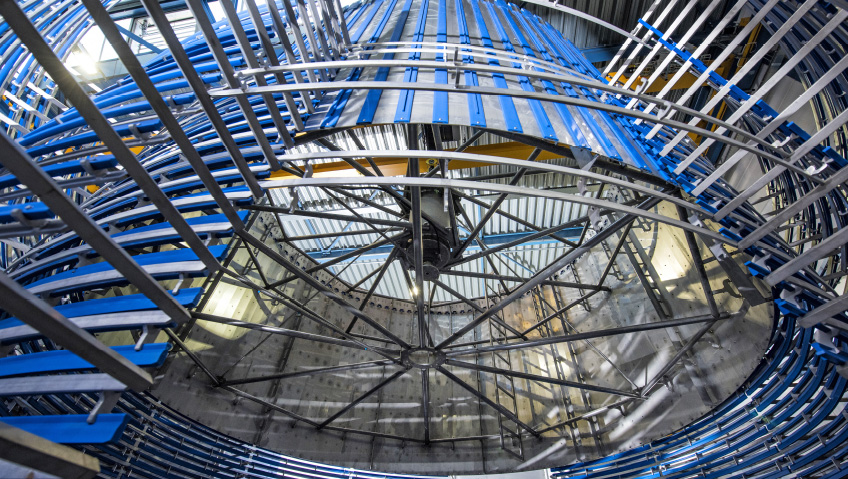Kal-Polymers will be massively expanding its capacity this year, a move that will enhance the company’s position as a leader in the North American plastics recycling sector.
Based in Mississauga, Ontario with a second facility near Atlanta, Georgia, this family-owned firm reprocesses and compounds plastic raw material that might otherwise have gone into a landfill. It is an eco-friendly business model that is beneficial for both the environment and the bottom line.
“We upcycle plastic scrap into higher-end applications,” says Director of Marketing Nemo Saha, son of the company founder.
Kal-Polymers subjects plastic scrap to heat, sheer, and other measures to transform it into pellets that can be reused for various purposes, acquiring its scrap from a core group of businesses.
“We have long-standing partnerships or supply agreements with manufacturers,” Saha explains. “Throughout their manufacturing process, they generate a lot of scrap, and we work with them to make sure that scrap material gets recycled.”
At present, the company has the capacity to handle a total of 115 million pounds of raw plastic annually at its U.S. and Canadian facilities. If all goes to plan, “by the end of the year, we will be at 150 million pounds,” says Saha. This dramatic increase is being driven by positive economic trends within the sectors served by the company, he says.
“The market has been demanding a significant amount of support from us, and we’ve been happy to supply it. As long as our customer base continues to grow, we will grow with it. That’s what we’ve done for over thirty years; that’s the ideology we follow. If [our customers] grow, they’re going to need support from us,” he says.
Specific services include grinding, colour separation, de-painting, de-metalizing, blending, baling, reprocessing, and de-volatilizing. Polypropylene (PP) is by far the most common material the company works with, followed by polyethylene (PE) and polyethylene terephthalate (PET). Kal-Polymers also handles nylon, polycarbonate (PC), and polystyrene (PS), to name a few.
All work is done in-house, and the company has a laboratory where plastic raw materials are subjected to physical and mechanical testing as well as chemical and thermal analysis. Technicians measure everything from strength to melt flow, impact resistance, flexural modulus, tensile, heat capacity, polymer makeup, and filler content. “In the lab, we test the plastic raw materials for all applicable sets of properties based on what the end application warrants,” says Saha.
One of the factors the company tries to assess is “the actual performance of the material and how it would react in the real world, under real-world conditions,” he adds.
Kal-Polymers emphasizes testing for two main reasons: the company is frequently required to meet stringent health and safety requirements and, at the same time, always wants to provide uniformly high-grade recycled plastic wares.
“Quality is of the utmost importance for us. It really does set us apart from other recyclers,” Saha states.
Standardization is sadly lacking within the plastics recycling field, he laments. “You could get two materials from two different recyclers, both of whom are claiming they are supplying you with polypropylene. But you will see significant differences in quality and consistency,” he explains. “Being able to provide material with consistent quality specifications has allowed us to succeed and grow over the past several years.”
The firm has customers in the automotive and food industries—two sectors with exacting standards for the parts, products, and materials they purchase from suppliers. Car and food companies alike set these high benchmarks to avoid causing accidents or illness in end-users.
As proof of its commitment to quality, Kal-Polymers has ISO 9001:2015 certification and approval from the U.S. Food and Drug Administration (FDA). To maintain its ISO status, the company is regularly audited to ensure everything meets specifications.
Handling challenging materials is another way the company differentiates itself from others in its space. For years, Kal-Polymers has accepted material containing print, coatings, laminates, or paint, which other plastics reprocessing and recycling companies might balk at.
The well-being of its workforce is also top of mind here. The company has a joint health and safety committee that meets regularly and “sets specific guidelines, protocols, and procedures to ensure the safety of our employees,” says Saha.
When COVID hit, Kal-Polymers adhered to all provincial health protocols to keep its workers from contracting the virus. Interestingly, the company itself thrived despite the contagion. “Our business actually went up tremendously during the pandemic,” shares Saha.
At the peak of the pandemic, many companies shut down and told their workers to go home; commercial and entertainment venues were often closed as well. As a result, homeowners frequently launched renovation and reorganization projects or had products delivered to their residences, he notes.
“There were a lot of goods being produced and purchased by everybody. A lot of those things were made out of metal, wood, or plastic, which is a contributing factor on why you saw all three of those sectors skyrocket in price,” he says.
Kal-Polymers was founded in 1992 by Nemo’s father, Gobi Saha, who based the company name on the first three letters of his wife’s name, Kalyani. Both parents remain involved in the business, with Nemo’s mother (who goes by Kelly) working on the operations side. Gobi has stepped back a bit, but still provides input daily “on the big picture side of things,” explains his son.
Today, Nemo and his brother, Aris (who serves as Operations Manager) take care of day-to-day business at the firm. The plan is to keep the company running as a family business going forward.
While it has expanded greatly since its launch, its central mission has always remained the same. The focus has always been “to recycle materials and generate revenue while helping the environment,” he recalls.
In 2019, the company acquired a facility near Atlanta which has its own laboratory and does much the same work as the Mississauga plant. The U.S. branch “is a natural extension of us. We acquired that facility, and enhanced it significantly over the years,” Saha says.
In the same spirit, Kal-Polymers has an intriguing plan to start issuing awards to its customers. “We’re going to start providing our customers with awards and plaques to say, ‘You have officially diverted one million pounds from landfill, two million pounds, ten million, twenty million.’ We want to start introducing that this year as it’s important to remember the benefits of our actions,” says Saha.
The company currently has 185 employees across Canada and the United States and, as a family business, corporate culture is very important. “We attract individuals that work hard and come in with a positive attitude every day. Most of your day is spent at work, so it should be with people you enjoy being around and enjoy collaborating with,” Saha says.
This approach extends into human resources and hiring new staff. “We like individuals to have a positive outlook, a team orientation, and a growth mindset. The growth mindset is very important to us because we have taken individuals that have started off at an entry-level position and brought them up in managerial positions as a result of their dedication, their commitment to the company, and their ability to learn and take training from us,” he adds.
The team also believes in giving back to the community, and regularly donates to local charities in Mississauga and participates in food drives for needy families. However, merely by existing, Kal-Polymers offers a valuable public service through its ability to provide a ‘green’ alternative to tossing out plastic scrap.
Besides its website, the company takes part in trade shows to promote itself. “There are a lot of industry-specific trade shows that we participate in. They’re targeted shows, very specific, because this industry as a whole, the plastics/polymer industry, is very niche,” says Saha.
COVID aside, “I’d say our biggest challenge as of late was volume—being able to supply the increasing demands of our customers—but that’s why we’ve invested in the additional 35 million lb. growth,” he states.
With this in mind, the company’s capacity expansion might not mark the end of its growth spurt. The firm owns an additional 50,000 square feet of land in Mississauga that it eventually plans to develop. It is open to adding new services and making new acquisitions down the road if the right opportunity arises.
“We’re always looking at advancing with our customer base. Originally, we expanded to Georgia due to pull from our customers in that region. The next pull seems to be toward Mexico but it’s much too early to tell,” says Saha.
“In five years, I see us with increased capacity and with a deeper reach in automotive and food applications. It’s just been wonderful to be a part of, because [in these sectors, recycled plastics] are less common. So, to be able to assist those industries has been very exciting for me.”

